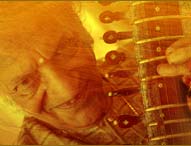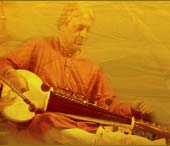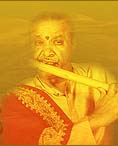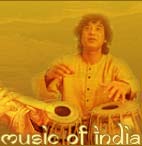Born On: April 2, 1902
Born In: Kasur, Punjab (now in Lahore)
Died On: April 25, 1968
Career: Indian Classical Vocalist
Nationality: Indian
Ustad Bade Ghulam Ali Khan, often referred as the 'Tansen' of 20th century, was one of the greatest classical vocalists of India. His unbeatable talent allowed him to sustain during the age of Abdul Karim Khan, Alladiya Khan, and Fayyaz Khan. Ustad Bade Ghulam Ali Khan was undeniably one of the most talented vocalists of his time. He lived a life full of best and worst experiences, but even during any of those times, he never let the music down. He had the versatility and flexibility in his voice, which ruled the flow of words and gave the pure essence to the song. Although his music career lasted for few years, but he was successful in launching a specialized niche for himself, that set him apart from the rest of the players in the music industry.
Early Life
Ustad Bade Ghulam Ali Khan was born in a family of musical heritage in Kasur, Punjab, British India, now in Lahore. His father Ali Baksh Khan was a well-known sarangi player and a vocalist. He took his formal musical training from his uncle Kale Khan, a well-known vocalist and composer. He used to practice for about 20 hours a day and lived in Lahore, Mumbai, Kolkata, and Hyderabad at different times. When India was partitioned in 1947, Ustad Bade Ghulam Ali Khan went to his home in Lahore. Thereafter, he returned back to India and settled here. In 1957, he got the citizenship of India.
Career
Ustad Bade Ghulam Ali khan started his musical career by playing sarangi and singing some compositions of his uncle, Kale Khan. He became a famous vocalist after his first concert in 1938, in Calcutta, now known as Kolkata. He became a great proponent of Thumri and made certain innovations to it. He recorded numerous Khayals and Thumris, such as 'Yaad piya ki aaye', 'Kate na biraha ki raat', 'Tirachhi Nazariya ke baan', 'Aaye na baalam', and 'Kya karun sajani', which are, till date, highly popular amongst music lovers. Initially, he denied singing in movies. However, he agreed to lend his voice to two songs in the chartbuster movie 'Mughal-e-Azam' (1960). His voice was used in this movie representing Tansen. He was gifted with a very melodious, flexible, and rhythmic voice. The unending passion for music gave him enormous energy and continued singing and performing in concerts with the support of his son Munawar Ali Khan till his death. By the time he touched 42, he was considered as the uncrowned king of Hindustani music by music aficionados.
Contribution to Music
He added a touch of Punjabi to Thumri, and currently, it is popular as 'Punjab-ang of Thumri'. When he made innovations to 'Khayal', he kept its conventional flavor alive. His style of singing was very simple and full of rhythm.
Personal Life
Ustad Bade Ghulam Ali Khan was married to Ali Jiwai who died in in 1932. His son Munawar Ali Khan, born in 1930, was also a great classical singer. He accompanied his father in all his concerts until his father's death in 1968. Thereafter, he continued giving solo performances, which again came to an end upon his death in 1989. His grandson, Raza Ali Khan is yet again a Hindustani classical singer, thereby keeping the magic and tradition of musical lineage alive.
Death
Ustad Bade Ghulam Ali Khan breathed last on April 25, 1968, at Basheerbagh Palace in Hyderabad, after suffering from a prolonged sickness that made him paralyzed in his last years. Nevertheless, he continued singing and performing in public with support from his son, Munawar Ali Khan.
Awards & Recognition
Sangeet Natak Akademi Award, 1962
Padma Bhushan Award, 1962
Legacy
Currently, Ustad Bade Ghulam Ali Khan Yaadgar Sabha, set by his disciple Malti Gilani, has kept the Hindustani music alive. The institution aspires to encourage classical music and organizes several concerts to live up to its aim. Thumri Festival, known as 'Sabrang Utsav', is presented every year by this institution. This festival is held across two days.
Timeline
1902: Born in Kasur, Punjab, presently in Lahore
1947: Moved to Pakistan upon India's partition
1957: Received the citizenship of India
1960: Gave his priceless voice to the blockbuster Bollywood movie 'Mughal-e-Azam'
1962: Honored with Sangeet Natak Akademi Award and Padma Bhushan Award
1968: Died at Basheerbagh Palace, Hyderabad.






